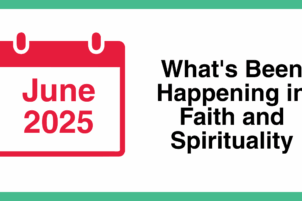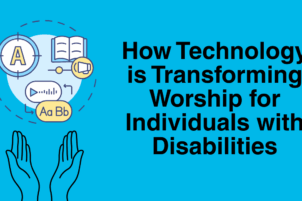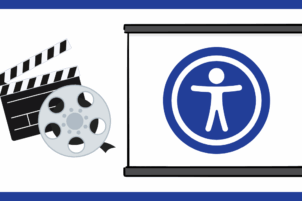Transcript
Chag sameach! Happy Passover! My name is Rabbi Lauren Tuchman, and I’m going to speak for a few minutes about celebrating Passover in an accessible and inclusive manner.
Passover is Zman Cheruteinu – time of our freedom. It is a central holiday in the Jewish tradition, a time where we come together with families and friends, loved ones and strangers alike, to reenact our Exodus from Egypt through the ritual seder meal. Seder, which comes from the Hebrew for order, is the special meal that takes place on the first and second night of Passover for many families, and is told through something called the Haggadah, or the telling. It is a piece of liturgy that has become synonymous with the Seder, and it is something that exists in so many different traditions and in so many different editions. Many folks choose to add modern things to the Haggadah about issues of great importance to them. Others stick to the traditional text. But any way you do it, the Seder is meant to be a time of togetherness and a time of remembering our collective history and our current experiences.
Often, Passover can be a holiday where we’re trying to balance the needs of so many different people around the Seder table, from the person who is more traditionally minded and wants to do the whole Haggadah, to the person who would be just as satisfied with a 10-minute Seder. We also have, in many of our families, individuals with a wide range of disabilities and accessibility needs, whether that’s the need for a braille or large print Haggadah, or for sign language, or for sensory friendly experiences so that the Seder is not too overwhelming, or whether it has to do with particular needs around food. Passover has numerous traditional dietary restrictions, the most well known of which is refraining from eating anything that is leavened, so anything that includes five grains that are known in Hebrew as Chametz, or leavened. And often families will go through a tremendous process of cleaning and koshering to rid their home of these food products. We also though have to bear in mind that many people in our families have sensitivities and food allergies, and figuring out a way to meet those needs is also extraordinarily important.
So how do we observe Passover, and specifically the Seder, in a way that is accessible, inclusive, and that allows everyone to enjoy the holiday? Know who your guests are going to be. I think one of the most important things to bear in mind when we think about gatherings in general is knowing who our guests are and what their needs are. No one wants to be at a gathering that is not meeting their needs, or where they feel like they are on the margins, or where they feel like they have to endure something for the sake of some religious tradition. Passover is meant to be something that is participatory for every single person – child and adult and everything in between – alike at the Seder. So having a sense of who’s going to be at the table is really important.
And knowing what things are really important to you about a Seder, and what things can you be a little bit more flexible on. And everyone’s going to have a different perspective on that. But knowing that ahead of time is really important, because it allows you to think through what is really important, where do I want to put my energy, and what are some things that maybe I don’t need to put as much energy into this year? What are some of the needs of the guests? Do folks need to have a break from the table? Should there be a rule that says it’s okay to get up and move around when you need to? It’s not meant to be a staid or formal thing where we’re ceremonially reading through the Haggadah in a certain way of, like, “I’ve got to get through this whole thing and then I can get to my food.” It’s really meant to be about reliving the story of Yezi’at Mizrayim, of the exodus from Egypt. So doing that in a way that’s actually going to allow everyone at the table to feel part of that experience, that’s the Ikkar, that is the main point of what we are trying to do in this particular observance.
Making sure that folks have Haggadah that they can access. Whether that is, for the braille readers among us, a Hebrew braille Haggadah. Whether that is, for those of us who use large print, something that is large print. Whether that is any number of modifications that make reading more accessible. And I think it’s really important that, whether it is a physical Haggadah, or whether you choose to use a digital Haggadah, that either way you ensure that your guests are able to access the text. That is very important. And maybe it’s even using a more visually oriented Haggadah, if that is the need of the folks at your table.
At the end, the most important thing is to remember why we’re here. We’re here to celebrate Yezi’at Mizrayim, our deliverance from Egypt. We’re here to remember and reenact that experience. And we’re here to do so in a way that is meaningful to every single person at the table. So as we are planning a Seder, and as we are planning how we’re going to go about our observance, let us bear that in mind as the key thing we are trying to achieve, and ensure that the accessibility measures we put into place are measures that will allow for that to happen in the way that is joyful for everyone involved.
Chag kasher v’sameach! Chag sameach v’kasher! Happy Passover! May you all have a beautiful holiday with your friends, families, communities, and loved ones.







